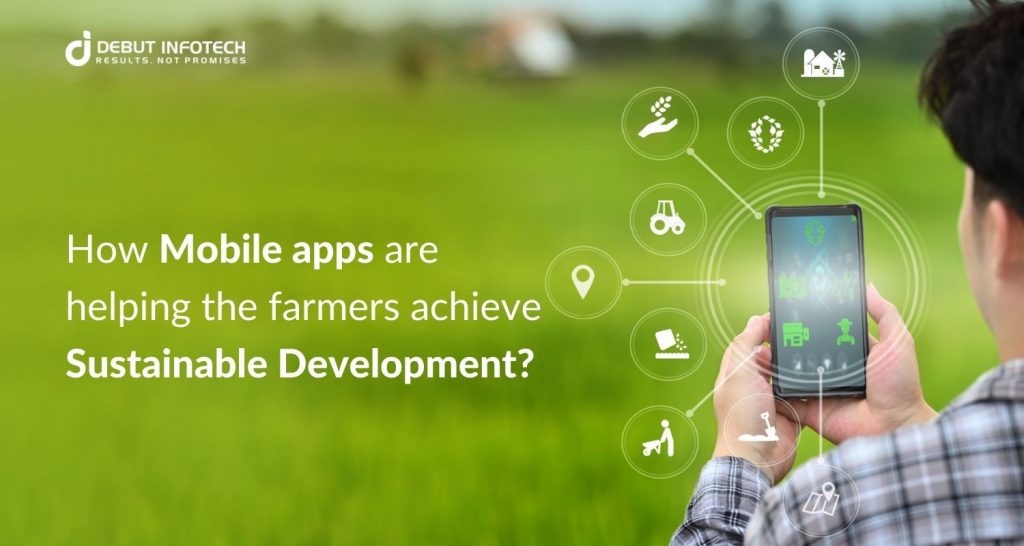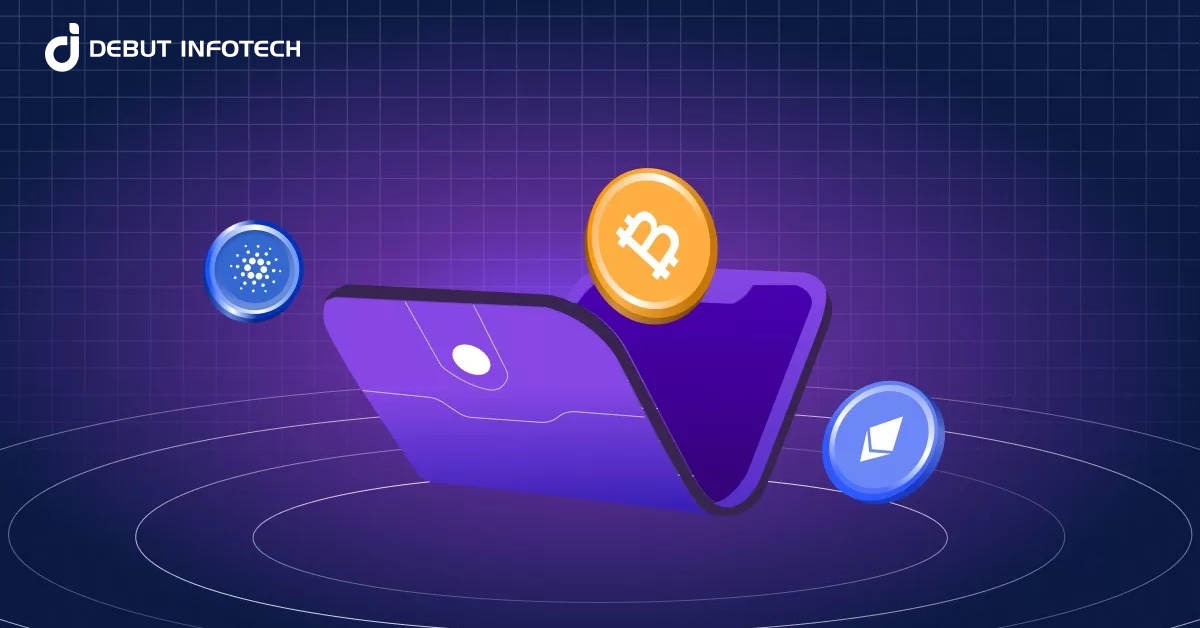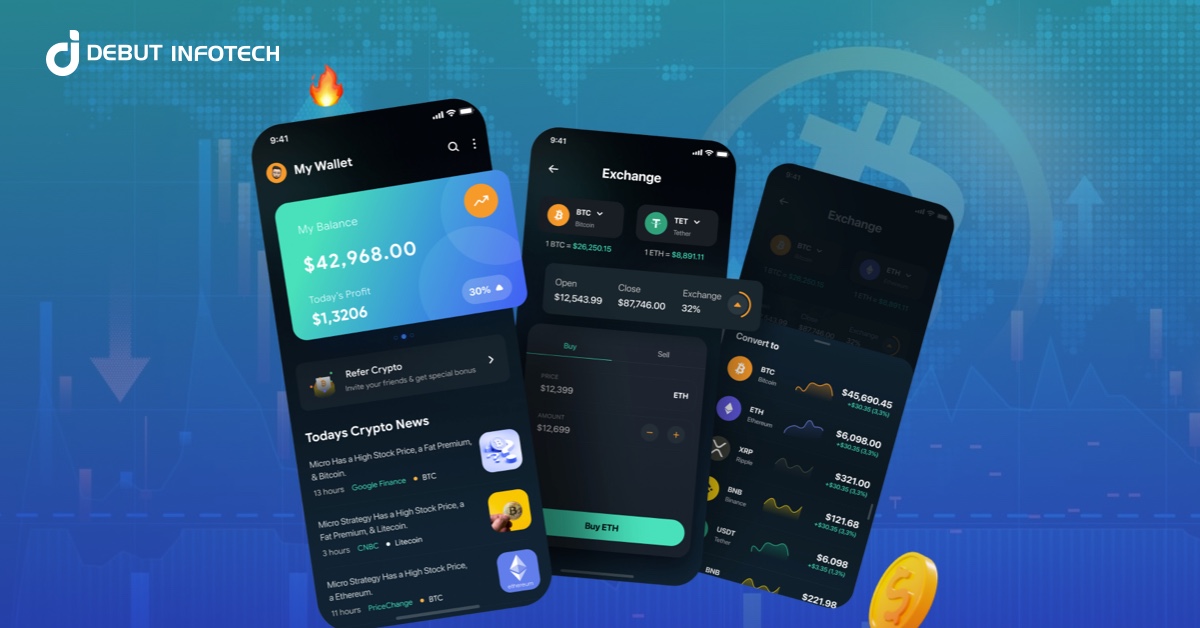
Introduction
In this era of information, mobile apps are being used for storing and transforming information in various forms such as voice, pictures, video & data from around the world. This interconnectedness of information has resulted in the reliance of major industries on mobile apps in a way that traditional methodologies are being replaced by modern technological ones.
The agriculture sector along with its allied sectors accounts for almost 70 percent of the livelihood in India wherein the majority of the rural households are dependent on agriculture. Implemented in the right manner, Information technology plays a vital role in various stages of farming. Right from the crop selection to the final disposal of the product to the consumer, mobile apps can revolutionize the agriculture supply chain.
In this article, we are going to discuss the need for having a farming mobile app & its benefits to the farmers and outcomes based on these advantages to help you understand the current state of mobile apps in this developing industry.
The need for agriculture mobile apps
Agriculture mobile apps are becoming a necessity for farmers. The current market share of mobile-cellular devices is around 499 million subscribers in rural India, out of which 109 million subscribers have their smartphones. Various mobile apps are directly and indirectly helping people immersed in agriculture by overall improving the functionality of this industry.
From texting to email, farmers are actively using mobile apps for farming. The numbers below depict various fields where smartphones are being actively used.
Here are some facts that would help you better understand the need for agriculture mobile apps:
- According to the Ministry of Labor & Employment labour bureau, there are more than 200 million agricultural labourers in India, contributing to more than 13.7 percent of the GDP growth.
- Mobile apps have become an important tool to transfer technologies, and the use of ICT tools in the agricultural sector is emerging as a potential tool for improving the livelihood of farmers.
- New techniques and the latest methodologies in farming can be easily learned through mobile learning or e-learning.
- Various mobile apps can help farmers make informed decisions regarding seed selection, sowing, production techniques as well as identification of disease.
- Through mobile apps governments can directly collaborate with farmers, providing them knowledge about product selling, procurement, and government subsidies.
Not only mobile apps, technologies such as cloud, integrated IT systems, and Blockchain in collaboration with mobile app technologies play an important role in spreading agriculture-related information to the farmers.
Hence, mobile apps can help farmers practice better farming techniques, helping them save money. Here we talked about farmers in general, but what about small-holder farmers, who are at more risk than the farmers in general?
The small-holder farmers & mobile app technologies
Amidst all this noise, the position of small-holder farmers is often overlooked. These farmers are much more exposed to the risks of agriculture, including factors such as climate change. Earning smaller margins for profits, these farmers are often just cultivating to feed the dependents.
The small-holder farmers need low-cost strategies to help them thrive. The recent advancements in Internet and cell phone technologies (ICT)bring in a lot of great opportunities & hop over the costly technologies that small-holder farmers generally can’t afford.
Through the use of ICT, farmers can enjoy better connectivity and information flow using the existing tools and technologies. Yet, the power and resources to leverage these technologies have worked from big sharks in the industry. However, this has only been done in the past after pressure from the governments.
So, mobile apps and ICT technologies are a boon for small-holder farmers as well. In the next section, you will read about the generated outcomes through the mobile application development services for the farming community.
Generated Outcomes by Mobile apps for the Farming Community
1. Access to the right information at the right times
Mobile apps provide smooth access to information about market prices, current mandi rates, irrigation management, fertilizer dosage, field preparation, technological advancements, and disease information. Through these measures, farmers can take advanced measures and plan their operations.
2. Access to extension services
Extension services have become rapid through mobile-based technologies. These technologies play an important role in bringing innovation and advancement in lab-to-field measures. These practices and techniques developed by various governments are reaching the farmers, resulting in high-yield production through two-way communication through various mobile application developments.
3. The link between direct market and distribution network
Through mobile apps, farmers can access information about the real-time prices of the mandi, which leads to greater prices and realization by farmers. These apps facilitate direct communication between farmers, suppliers, and buyers.
4. Effective accounting and traceability
Mobile-based apps have led the advancement of farmers with increased efficiency and predictability reducing administrative costs and less exploitation by middlemen, which have improved quality standards for buyers and reduced frauds.
5. Access to finance opportunities
Mobile app technologies are empowering farmers by making the services of the financial industry available on their smartphone devices, which provides information about the government aid to the farmers, and various subsidies on farm equipment.
Conclusion
The adoption of mobile app technologies has made agriculture favourable for developing countries for farmers and small-holding farmers in general. The overarching benefits of ICT in agriculture are a reduction in transportation and transactional and illegal trade waste. In addition to making agriculture easy for the farmers, it also brings product traceability, disease tracking, and storage.
The agriculture industry needs disruption, and if you are looking for the right software developers to help you with it, we have everything you need!
Hire our mobile app developers and develop robust and scalable agriculture mobile apps with us.


